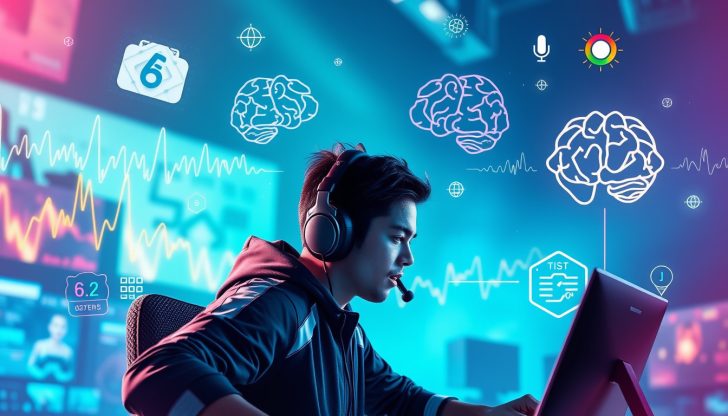Unlocking the Mind: Exploring the Impact of Esports Psychology on Performance and Mental Resilience

In the growing world of esports, mental readiness sits side by side with technical play. Esports psychology studies how the mind and body join to shape performance and steady resolve. This article links words closely to show the work of mind coaches, the help they give gamers, and the methods they use.

Understanding Esports Psychology
Esports psychology works on the mind behind competitive play. It applies basic mind ideas to boost focus, drive, self-belief, and overall mental health. Esports now draws many eyes, and players feel heavy pressure to perform. In response, many teams hire experts who guide a strong mental framework for each match.
Key Benefits of Esports Psychology
-
Better Play:
Experts work with players to build a strong mind. They use visualizing good plays, focus drills, and calm-down exercises to shape clear game plans. -
Emotion Control:
Players learn ways to handle feelings. They find steps to keep calm when pressure builds, soothe in-game frustrations, and bounce back after mistakes. These simple links help them choose better moves during fast moments. -
Confidence Building:
Belief in one’s own skill can change the game. Experts use routine work to show success and steady self-belief. This work turns doubt into firm resolve in each step. -
Communication and Team Bonds:
For games played in groups, clear chat and good links matter. Specialists guide players to listen and speak well. Better team bonds lead to smoother play. -
Coping with Setbacks:
The esports scene can test a player’s strength. There is heat from the public and a heavy need to win. Experts supply tools that help players face loss, manage views, and think kind about both games and growth.
Strategies Used in Esports Psychology
-
Performance Routines:
Clear pre-game steps help build a guide for the mind. Be it quiet moments, warm-ups, or specific in-game cues, routines help a player feel safe and in command. -
Mental Conditioning Exercises:
Simple acts like mindfulness and relaxation work well. These help the mind stay focused and calm even when the game grows tense. Clear thoughts bring fewer errors and firm play. -
Goal Setting:
Simple aims help design training and play. Experts work with players and teams to set small and big aims. These short links keep players driven and on track. -
Work-Life Balance:
Esports may mix personal time with gaming. This mix can hurt mental health if left unchecked. Experts suggest clear breaks for play, rest, and time with friends. They keep the mind, body, and social life as top parts. -
Social Media Guidance:
Online places can bring tests like harsh chat and toxic comments. Coaching in good online talk helps players keep control. This guidance helps keep their mind safe and calm online.
Conclusion
As esports finds its place in sports, the value of mental work grows. Esports psychology builds not only a player’s best moves but also stronger team links. With a well-prepared mind, gamers hold their ground in fast-paced matches.
Psychological tools give players the clear plans they need for wins. As the field grows, more work in mind care will shape future winners in gaming.
